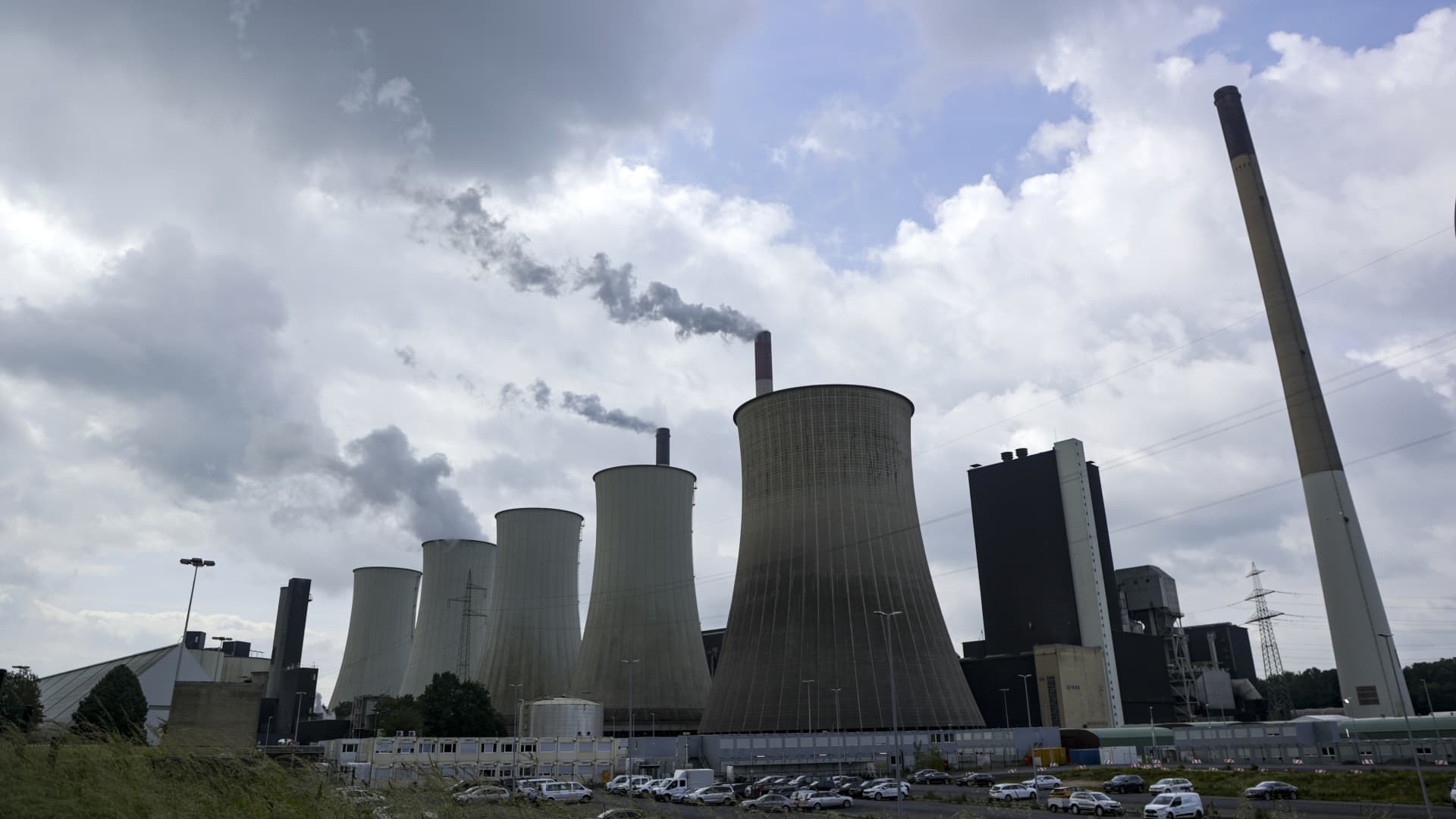‘The situation is serious’: Germany plans to fire up coal plants as Russia throttles gas supplies

Germany has said the deteriorating gas market situation means Europe’s largest economy must limit the use of natural gas for electricity production and burn more coal for a “transitional period.”
Economy Minister Robert Habeck on Sunday warned that the situation is going to be “really tight in winter” without precautionary measures to prevent a supply shortage.
As a result, Germany will seek to compensate for a cut in Russian gas supplies by increasing the burning of coal — the most carbon-intensive fossil fuel in terms of emissions and therefore the most important target for replacement in the transition toward renewable alternatives.
“That’s bitter, but it’s almost necessary in this situation to reduce gas consumption. We must and we will do everything we can to store as much gas as possible in summer and autumn,” the Green Party’s Habeck said in a statement, according to a translation.
“The gas storage tanks must be full in winter. That has top priority,” he added.
That comes shortly after an ominous warning from Russia’s state-backed energy giant Gazprom exacerbated fears of a full supply disruption to the European Union.
Gazprom said last week that it had further limited supplies via the Nord Stream 1 pipeline that runs from Russia to Germany under the Baltic Sea.
Gazprom cited a technical problem for the supply cut, saying the issue stemmed from the delayed return of equipment serviced by Germany’s Siemens Energy in Canada.
Habeck has rejected that claim, saying the move was politically motivated and designed to unsettle the region and ramp up gas prices.
It’s not yet known when or if Nord Stream 1 gas flows will return to normal levels.
‘Our product, our rules’
In fiery comments likely to have sent alarm bells ringing throughout European capitals, Gazprom CEO Alexei Miller said Thursday that Russia will play by its own rules after the firm halved supplies to Germany.
“Our product, our rules. We don’t play by rules we didn’t create,” Miller said during a panel session at the St. Petersburg International Economic Forum, according to The Moscow Times.
Italy, Austria and Slovakia have also reported supply reductions from Russia.
Policymakers in Europe are currently scrambling to fill underground storage with natural gas supplies to provide households with enough fuel to keep the lights on and homes warm before the cold returns.
The EU, which receives roughly 40% of its gas via Russian pipeline, is trying to rapidly reduce its reliance on Russian hydrocarbons in response to the Kremlin’s months-long onslaught in Ukraine.
“The tense situation and high prices are a direct consequence of Putin’s war of aggression against Ukraine. There is no mistake. What’s more, it’s obviously Putin’s strategy to unsettle us, drive up prices and divide us. We won’t allow that. We defend ourselves resolutely, precisely and thoughtfully,” Habeck said.
Germany’s storage facilities are currently at around 56% capacity, above the storage levels in the same period last year, Habeck said.
“The missing quantities can still be replaced, and the gas storage tanks are still being filled, albeit at high prices. Security of supply is currently guaranteed but the situation is serious,” he added.




